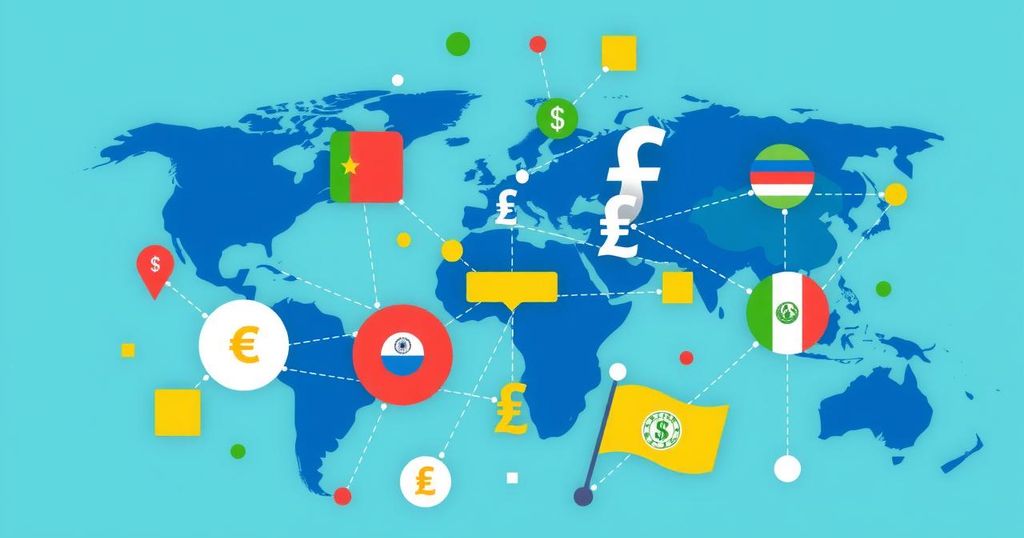Donald Trump’s Tariff Announcement: Key Points and Global Reactions
President Trump is set to announce new reciprocal tariffs, impacting all US trade partners, including India. The tariffs aim to counteract unfair trade practices and will lead to immediate actions against nations with high duties on US goods. Allies such as Canada and the EU express firm opposition, indicating escalating tensions in global trade.
The White House has indicated that President Donald Trump will announce new reciprocal tariffs on April 2, 2023, without disclosing specific details before the announcement. White House spokeswoman Karoline Leavitt emphasized that the initiative aims to eliminate unfair trade practices that have harmed the United States for decades, asserting that the president is committed to making historic changes for the American populace.
Leavitt stated that tariffs would begin immediately on countries imposing high duties on US goods, with a notable 25% tariff on automobile imports commencing on April 3. Concurrently, it was noted that Trump convened with his advisors to ensure a well-strategized announcement, while promising measured kindness in the implementation.
India, along with other US trade partners, is currently exercising caution amidst the economic instability arising from Trump’s tariff policies. Leavitt commented that the specifics of the reciprocal tariffs would be determined solely by President Trump. India, meanwhile, is actively seeking a bilateral trade agreement with the United States.
Moreover, Indian officials are strategically analyzing four potential scenarios regarding the potential effects of these tariffs on their trade relationship and remain optimistic about ongoing negotiations. Reports suggest that US Treasury Secretary Scott Bessent communicated to Republican lawmakers that these tariffs would set a benchmark for the highest tariffs imposed on foreign countries, with adjustments possible based on compliance with US demands.
The Washington Post revealed that Trump’s administration is contemplating a 20% increase in duties on imports from all nations, forecasting revenue of approximately $6 trillion, which could be rebated to affected industries. However, the Wall Street Journal indicated that there might also be a consideration for a lower across-the-board tariff targeting select nations.
In response to Trump’s anticipated tariffs, allied nations including Canada and the European Union have expressed strong opposition. Canadian officials, led by Prime Minister Mark Carney, pledged to retaliate against what they perceive as unjust trade actions, while EU Chief Ursula von der Leyen insisted on pursuing a negotiated settlement, reaffirming their readiness to protect the interests of European workers and businesses.
In summary, President Trump’s forthcoming announcement of reciprocal tariffs marks a significant shift in US trade policy, emphasizing accountability from trade partners. Countries like India are strategically preparing for potential impacts, seeking to negotiate favorable trade agreements amid this uncertainty. The commitment from allies to counteract these tariffs underscores the potential for escalating trade tensions and necessitates keen observation of further developments in international trade relations.
Original Source: www.hindustantimes.com




Post Comment